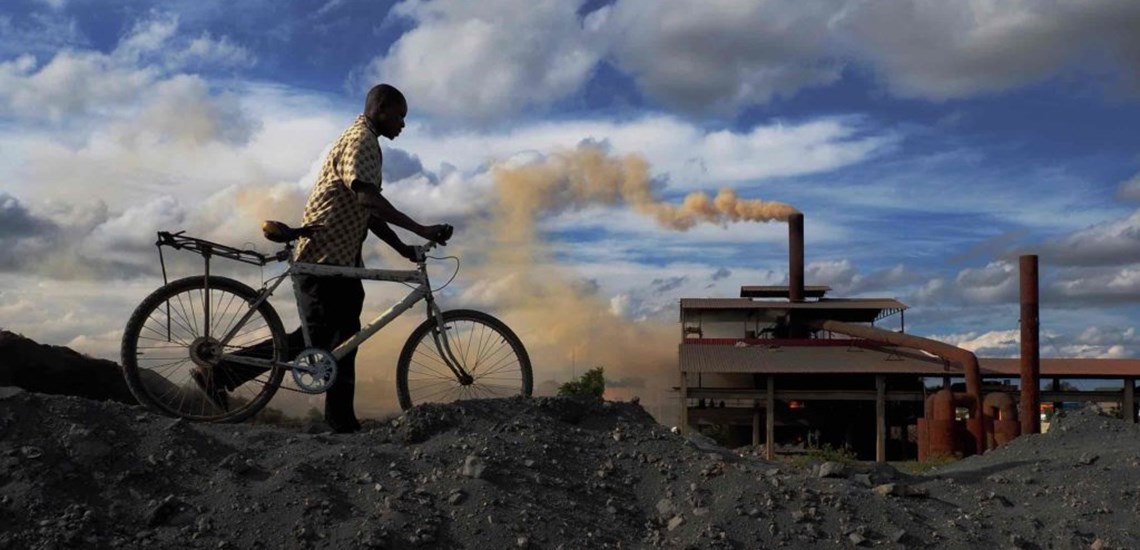In an article in the Equal Times, the typical exploitation scenario is unfolded (abridged).
Chinese Plants Polluting the Gambia Have Become a Concern
Sulayman Bojang, a 30-year-old environmental activist, says that when he first heard, in 2016, that a Chinese company called Golden Lead wanted to establish a fishmeal factory in his small coastal town in south-west Gambia, he was excited. “We thought that our youths would get work and be able to feed our families,” he said. “Having a factory in Gunjur would be a big deal in terms of development.”
However, within a few months of the fishmeal factory opening in Gunjur in 2016 a terrible odour enveloped the community. In May 2017 Gunjurians woke up to find that the water in the community wildlife reserve, next to the factory, had turned red. Residents also began to complain of dead fish and mammals washing up on their beach.
This introduced the story of ongoing investment and pollution by foreign companies, mostly Chinese.
Ismaila Ceesay, a professor of political science at the University of The Gambia says he is suspicious of some of the deals between members of the government and various foreign businessmen. “Someone in government is giving these ‘investors’ what they want. We see what the government is getting from them,” he says, referencing a new US$50 million conference centre being built on a piece of land that used to be a part of Bijilo National Park. “The government is complicit in the destruction of our environment with these foreign companies.”
In other places, however, environmental activists have had more success in stopping problematic foreign businesses. Abdoulie Samateh, a 26-year-old college student, grew up on the edge of Brikama, The Gambia’s second largest city. As a child, he used to play in what was once a large forest. In early 2017 his father complained that a horrible odour was waking him up in the middle of the night.
Samateh took his motorcycle out one evening and found the source of the odour: smoke billowing from behind a wall with a red iron door. “We had no idea what was happening back there,” he says, “we just knew we were getting sick.”
The source of Samateh’s family’s illness was a makeshift Chinese-run tyre pyrolysis factory called New Energy Enterprise (NEE). Tyre pyrolysis refers to the burning of used tyres at high heat in zero-oxygen chambers to render a heavy-duty fuel used for shipping vessels. “It can be a clean tech process,” says Martin von Wolfersdorff. However, “amateur, poorly-operated pyrolysis plants are committing crimes against the environment.”
Tyre pyrolysis has been hailed by the recycling industry as one way to deal with the estimated one billion tyres discarded every year. While pyrolysis factories in Europe and North America adhere to strict environmental regulations, some factories in the developing world have been accused of toxic emissions and environmental degradation.
According to the Toxicology Data Network raw carbon black – a powder by-product of poorly done pyrolysis – has been found to cause a wide range of chest and lung problems, and is possibly carcinogenic to humans. In Brikama, the raw carbon black, left outside the factory walls in old plastic sacks, has been stirred up by the wind and has seeped into the soil.
When Gambian journalists visited the site earlier this year they photographed a pit filled with an oily liquid, which is often the by-product of amateur pyrolysis operations and can contain high amounts of carcinogenic polycyclic aromatic hydrocarbons.
Officials at the NEA said they were not informed of these toxic by-products when a representative from NEE gave a presentation on pyrolysis to the agency in mid-2015. After the presentation verbal, but not written, approval was granted. The factory has been in operation since the end of 2016 until earlier this year without follow up from the NEA.
Samateh and other community members complained to Jammeh Kebba, the technical unit head at the Department of Forestry. Kebba said he tried to approach the owner of the factory, but was rebuffed. Instead, Kebba gave an interview to a local news station, which attracted significant attention. Soon after, the NEA got involved and, shortly thereafter, black smoke stopped emanating from the factory.
Samateh and others are not celebrating yet. “When we know for sure they will not come back, then we can jubilate. But I still don’t trust our government to not take bribes,” says Samateh. “We must make sure they will never operate here again.”
Source: Equal Times




















